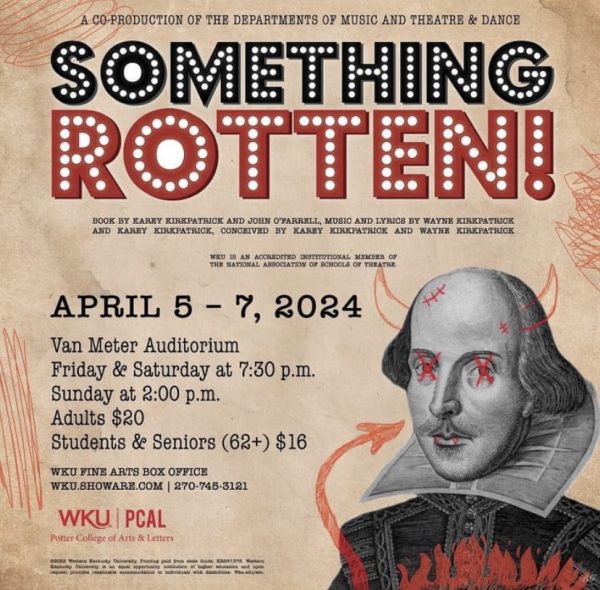Student pays the price when she was caught illegally downloading
September 10, 2010
Graduate student Amanda Duckworth never thought she would get caught.
“I know tons of people who did it,” said Duckworth, who is from Versailles. “I’m really paranoid, so if I’d known I had the slightest chance of getting caught, I wouldn’t have done it.”
She’s talking about illegal downloading, and to her surprise, she did get caught – just like about 400 other WKU students each year.
For Duckworth, getting caught meant a steep bill.
She said she got a notification in the mail the summer before her junior year at WKU. The letter said she was being sued for illegally downloading music.
The letter, which was from the Recording Industry Association of America, said that Duckworth was being sued for $750 per song, and according to their records, she had downloaded 202.
“I’m almost sure I had downloaded more,” she said. “But the total they were suing for was $151,500, which is a lot of money for a college student.”
According to the RIAA’s website, illegal music downloading causes $12.5 billion of economic losses and 71,060 jobs lost each year in the U.S.
Duckworth said that she had two choices. She could either fight it in court, or settle out of court. After much research, her parents decided to settle out of court, and they paid $4,400.
Duckworth said she took the experience as a lesson learned.
“I have bought every single song I’ve downloaded since I hit the submit button on that $4,400 payment,” she said.
Gordon Johnson, director of Administrative Systems and Applications, said illegal downloading of movies and music is a growing problem on campus.
Johnson’s department receives notices from recording and movie industries that identify IP addresses on campus associated with illegal file sharing. Last year, 418 cases were reported.
“It seems to be going up every year,” he said.
Johnson said that when a complaint is received, the student has his or her WKU Internet access disabled. He or she is required to go to Mass Media and Technology Hall and read WKU’s policy on illegal file sharing, watch the RIAA video and sign a document in order to regain access.
On the second offense, the student is removed from the WKU network for one month and is required to pay a $50 reconnect fee. On the third offense, the student loses network access for three months and must pay a $100 reconnect fee.
Bowling Green sophomore Richelle Woodrome said illegal downloading is popular because it means free music for “broke” college students.
And, students don’t want to buy CDs because they want to make their own CDs with various artists, Woodrome said.
“I think (university officials) take it a little too seriously. It happens every day,” she said.
Johnson said WKU recently received a letter from Attorney General Jack Conway emphasizing that he expects each university to have an aggressive compliance plan in response to the Higher Education Opportunity Act, which calls for universities to have strict plans for dealing with and preventing illegal file sharing.
Johnson said university officials are currently reviewing the policy and expect to have it revised in a couple of weeks.
“We’re not going to mess around with it,” he said. “It takes a lot of time and resources, so we’re trying to take steps to make the process more efficient.”
Duckworth said she advises other students to stay away from illegal downloading.
“You really don’t think you’re gonna get caught, but it’s still wrong,” she said. “It’s essentially the same as swiping a CD off a shelf in a store. You can get caught no matter who you are. Just don’t do it.”













![Students cheer for Senator at Large Jaden Marshall after being announced as the Intercultural Student Engagement Center Senator for the 24th Senate on Wednesday, April 17 in the Senate Chamber in DSU. Ive done everything in my power, Ive said it 100 times, to be for the students, Marshall said. So, not only to win, but to hear that reaction for me by the other students is just something that shows people actually care about me [and] really support me.](https://wkuherald.com/wp-content/uploads/2024/04/jadenmarshall-1200x844.jpg)




![Megan Inman of Tennessee cries after embracing Drag performer and transgender advocate Jasmine St. James at the 9th Annual WKU Housing and Residence Life Drag Show at Knicely Conference Center on April 4, 2024. “[The community] was so warm and welcoming when I came out, if it wasn’t for the queens I wouldn’t be here,” Inman said.](https://wkuherald.com/wp-content/uploads/2024/04/smith_von_drag_3-600x419.jpg)






